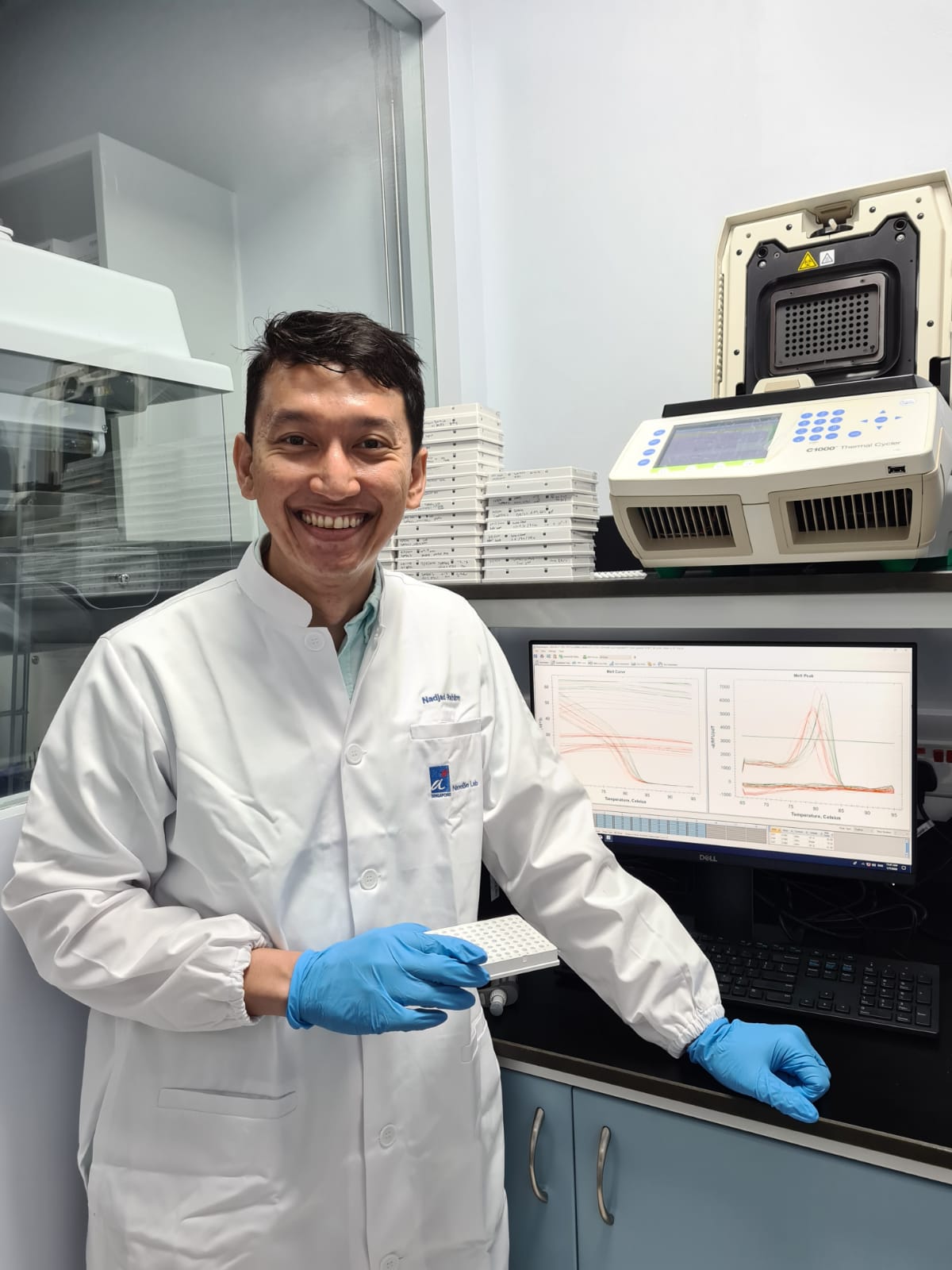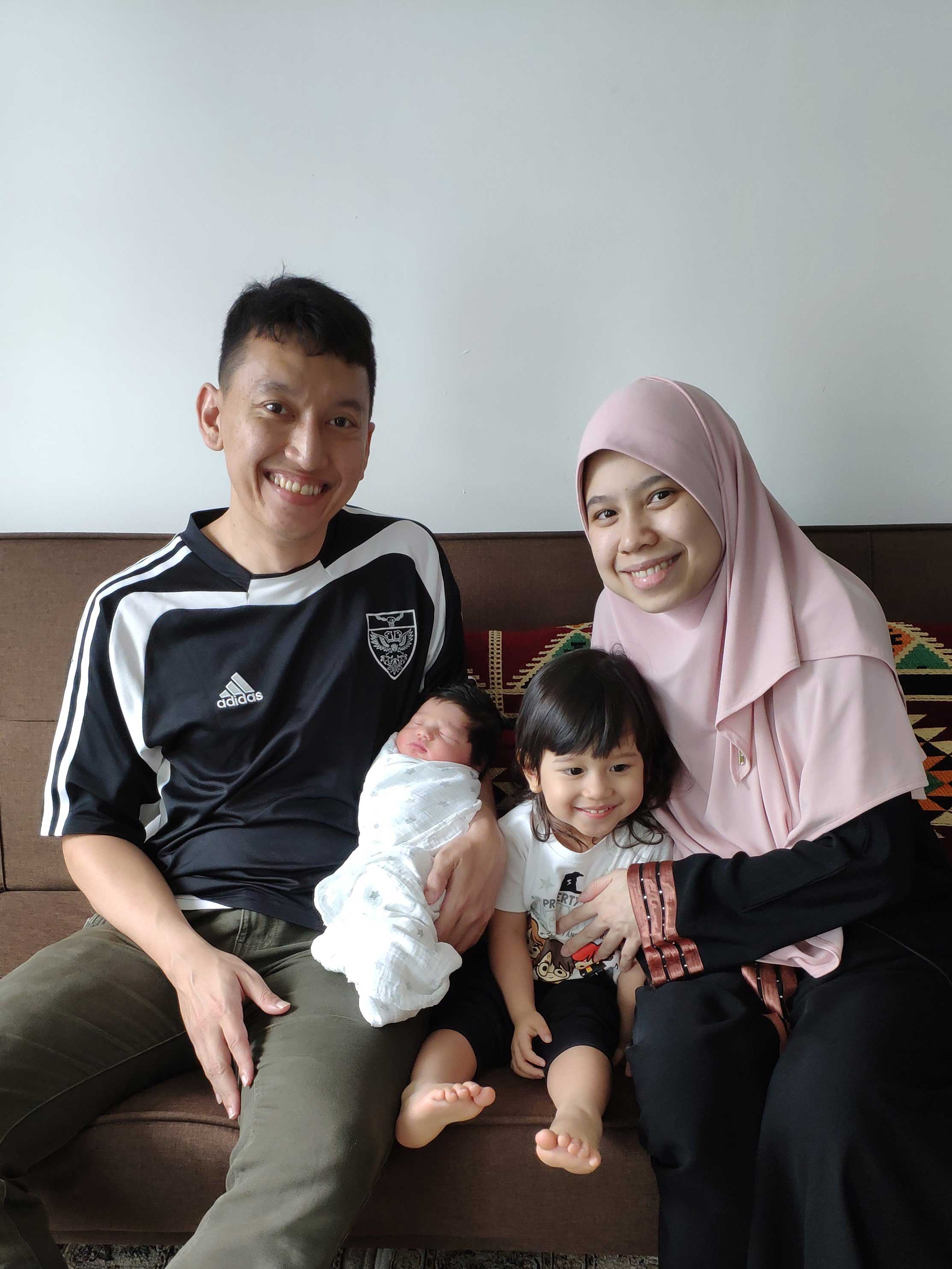
Can you tell us a little about what you do at work and how COVID-19 has changed your typical day?
I am now double-hatting as a PhD candidate at the NUS Graduate School for Integrative Sciences and Engineering (NGS) and a Research Director at an A*STAR spin-off called Cellbae Pte Ltd. COVID-19 has practically delayed the graduation for my PhD but the scale and impact of the disease had also spurred me to look at an established set of problems in very different ways.
I am now focused on diagnostic solutions for COVID-19. Specifically, looking at how we can do it faster, cheaper in low-resource environments. We are currently validating new methods and kits at a local hospital and with that comes an almost 24/7 working schedule.
How is your current research making an impact in fighting COVID-19? What more can we do?
I recently found a new way to amplify nucleic acids and a provisional patent has been filed with my supervisor. I think this technology can really help the world, not just the rich, but the poor too! But such new technologies take time to be validated and adopted.
Specifically for COVID-19, I think the whole world is working on the problem together and we are looking at unprecedented speed and success in translating vaccine research. To manage the effects of COVID-19 on health and the economy, the key is good protective vaccine. I think this would probably be safe for use only early/mid-next year.
Meanwhile, everyone should keep clean and be socially responsible.
What are some challenges that you are facing in uncertain times like this, both at work and in your personal life? What keeps you going?
Personally, my greatest concern is getting infected from work as I have just welcomed my second son about three weeks ago.
But really, this is exactly why I chose what I wanted to do. Working on a problem such as COVID-19 is the raison d'être for any medical scientist. There are so many moral and scientific aspects to it that gives you personal and professional satisfaction.
What positive things have you noticed emerging out of this global crisis?
Having more people more concerned about hygiene! That's amazingly positive. Also, the help extended to families by neighbours. The respect that people have for poorly compensated essential workers like our cleaners. I think more people should know that collectively, the cleaners and rubbish disposal teams contribute much more to the health of society than any doctor, and this can actually be quantified by DALYs [Disability Adjusted Life Years].
Do you have any thoughts on how the tertiary education landscape in general, or NUS/USP specifically, will/should change moving forward?
I think more decentralised and independent learning is important but, the core of having curiosity and maintaining integrity remains of utmost importance in the pursuit of knowledge.


What advice would you like to give to our USP community and the Class of 2020 graduates?
It's a challenging period, the job market does not look very rosy but I have full confidence in the talent residing in every graduate of the USP community/Class of 2020. I am sure that with your talent and tenacity, you will either find a path or create a new path. And when you're on the path, stay true and maintain integrity in everything that you do, so that you won't have regrets in the future. And try to help everyone along the way; I am sure with your talents, you can always lend a helping hand to others.

